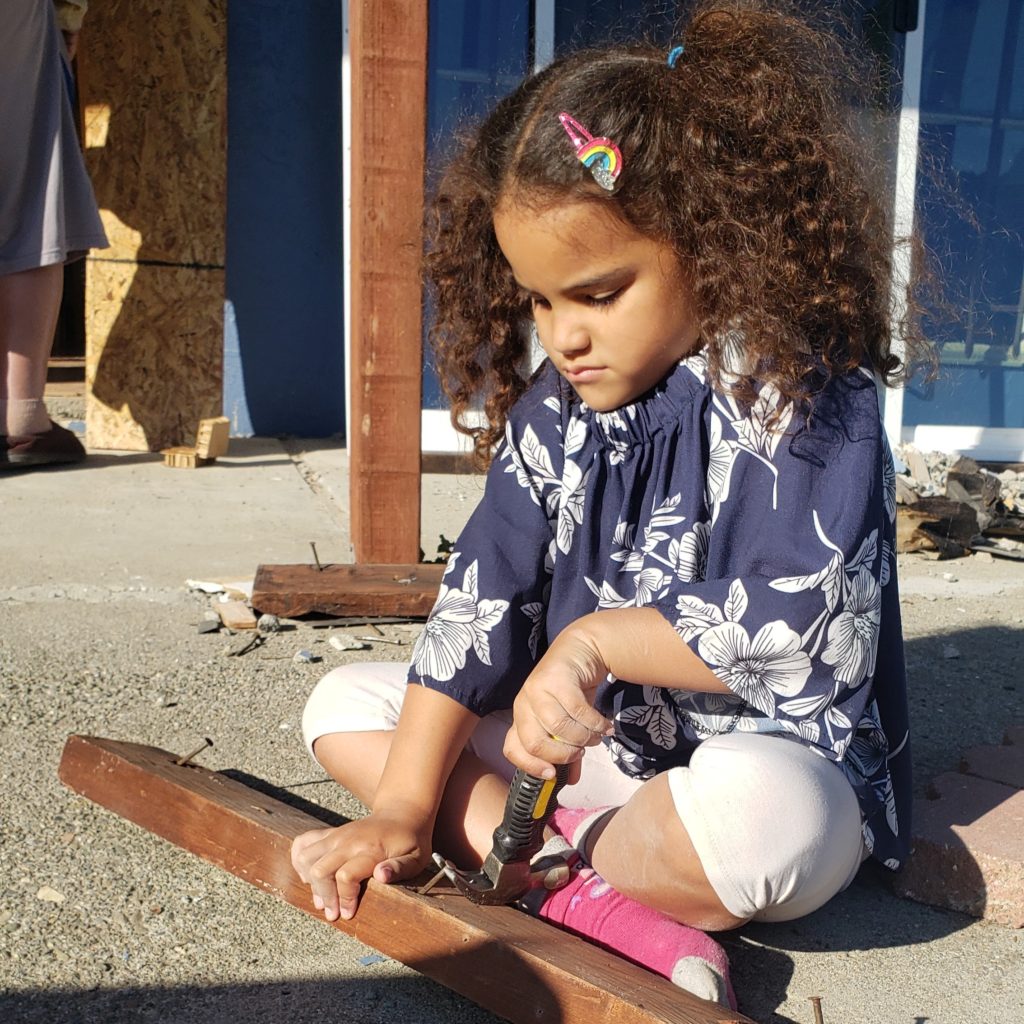And the Word became flesh, and dwelt among us; and we saw His glory, glory as of the only Son from the Father, full of grace and truth.
John 1:14
The Lord God said, “It is not good for the man to be alone. I will make an ezer kenegdo for him.”
Genesis 2:18
The Hebrew phrase ezer kenegdo is notoriously difficult to translate. The first word means helper, but in a deeper way than a “helper around the house.” It’s worth reading the other Scriptures where it is used, including times when Israel requested military help and times when God was a shield and a defense against adversaries. There is a connotation of support in battle. The second word means standing in front of or opposite someone, face to face or beside. The Hebrew root word can be “before, against, in the presence, about.” You can see how these words would be difficult to translate into a single two-word phrase that provides the same connotations to a 21st century Westerner that they did to a 1st century Middle Easterner. It’s how we ended up with “help meet” or “suitable helper.”
The book Make Your Mark by Brad Gray provided a lengthy explanation of the phrase that I found poignant and helpful. The author argues that we are supposed to provide both support and opposition to not only our spouse but to all the close relationships around us. Women are not called only to be an ezer kenegdo in marriage, although it is imperative in marriage; it is also a role to fulfill at any time. We are to support one another in the spiritual battle, and we are to provide opposition when our spouse or friends are making unrighteous choices – today we often call this opposition “discipling.”
To me, this seems like the perfect mirror of what Jesus came as – the fulfillment of the law, the Word as flesh, full of grace and truth. We see throughout the BIble that Jesus was full of grace, and it is the very grace of God that is our salvation. But Jesus never used that grace to allow people to continue to sin. To the adulterous woman, He said that He did not condemn her if no one else did but that she was also to leave her life of sin. He was the embodiment of perfect grace AND perfect truth, calling people back to righteousness always.
I also believe it provides such an incredible example of how I can fulfill my God-given role as a woman and a wife. I am to be a support in battle that provides biblical opposition when required. As an example, I’ll share a story of when my husband needed an ezer kenegdo, and an example of when I needed one – and they both focus on our very sensitive middle child.

Afa’s parents live with us and, as grandparents do, often buy things for our children that I wish they wouldn’t. One day Grandma and Grandpa came home from the store with cheap plastic dart guns for each of the kids, with the darts that have a flat end to stick to glass. My irritation was immediately apparent because I hate cheap toys because they only add to the mélange of unnecessary stuff around the house. Afa hated these particular toys because our children were only 2, 4, and 5 and did not have the self control to only shoot the darts at appropriate targets. He had a very direct conversation with them about what they could and could not shoot the darts at. Top of the list NOT to be shot: people and TVs.
Fast forward to the end of a long day of shooting and collecting darts. Eliam in particular loved guns and weapons of any kind, so he had been thrilled all day with searching out his darts and finding new targets. We were doing our evening chores and cleaning the bedroom, when Eliam pulled out his dart gun, aimed directly at his TV, and shot it. Afa was immediately and reasonably infuriated. I had repeated the two rules all day – don’t shoot people and don’t shoot the TVs. Eliam had deliberately broken one of those. Because Afa was so angry, he took the gun from Eliam, snapped it in half, dropped the pieces on the floor, and walked out of the room. Eliam was absolutely devastated. He was crying so hard that he couldn’t breathe, and Afa was in the other room fuming.
It is in moments like this that I can fulfill my role as a helper and as godly opposition. I gave Eliam a hug and told him that I understood how sad he was about his gun. We finished cleaning the room and getting everyone in bed. Eliam was inconsolable, but he eventually fell asleep. I found Afa in the living room, and I sat beside him and told him that it was unnecessary to break the gun and that he needed to apologize. He felt justified in the way he handled the situation because Eliam had broken a clearly established boundary. When I explained to him that he was acting like a bully and that there were better ways to teach Eliam that following the rules was important, he stormed off to bed. It was a long night.
The next morning, after Afa woke up, he immediately came in and apologized for the way he had acted the night before. He also apologized to Eliam, which set off a fresh wave of tears but was imperative in repairing their relationship. If I had chosen to either keep quiet or to walk in a yell at Afa, the situation would likely have come to a different conclusion. I chose to remain calm and provide the godly opposition that the moment required.

Afa is not the only one who needs godly opposition, however, and in a surprisingly similar situation, he provided it to me only a few months later. We had been working on keeping the kids’ room clean, but my parents had come for a visit and brought lots of clothes with them. During my parents’ visit, Afa’s parents had gone to see family in Los Angeles and brought back toys with them. I hadn’t taken the time to organize the children’s room with all the new stuff, and it had gotten overrun in chaos. The art supplies and toys were all over the place, and we couldn’t see the floor. I had not been consistent about picking up their room each night before bed time, and things had spiraled out of control.
One set of toys that Afa’s parents brought back were three large water guns. The kids already had water guns, so I told them I was going to put those away for another time when we needed them. Having a second whole set of water guns was only going to add to the clutter in the backyard, and I wanted to avoid that until we needed more guns, possibly when some friends came over to play. The kids asked multiple times a day if they could get their new water guns, but I knew they would be a source of conflict and left them in my closet.
All five of us were working in the children’s bedroom to get it back in order, and I was getting angrier and angrier as I found things shoved under the bed and in boxes where they didn’t belong. We couldn’t find school supplies we had needed earlier in the day because everything was out of place, and when I turned around Eliam was sitting on his bed playing with a toy instead of putting it away. I had a fit of rage and started yelling about how I didn’t make the mess but I was trying to clean it up and he needed to help too. Then I looked him in the eye and told him that if he couldn’t help clean his toys up I would put them all in the trash, including the new water guns we had never even opened.
In my anger, I said this only to hurt his feelings. It was a brutal stab at my tiny four year old, especially since I bore a significant part of the responsibility for the state of their room. I knew that if I stayed on top of culling physical stuff that the rooms wouldn’t get out of control. I also knew that if I was consistent in tidying with the kids each evening, it also wouldn’t get out of control. Eliam has always been easily distracted, so when he picked up the toy, of course his natural response was to play with it instead of putting it in the box. Thankfully, Afa intervened immediately and sent me to another room, again not responding to my sin with sin but a kind, immutable direction that I needed to leave.
He finished helping the kids clean and put them to bed, and when he came to the living room, he told me I needed to apologize to Eliam. In my pride, I defended myself but his godly opposition didn’t leave me anywhere to turn except repentance. I went into their room and climbed into Eliam’s top bunk. I apologized to all the kids for my fit of rage. Eliam asked in a flood of tears if I was going to put his new water guns in the garbage, and I assured him that I had said that out of anger and was not going to do anything to his toys.

Without my husband, it’s possible I would have continued to stew in my anger. My pride would have bolstered my defensiveness, and I may have chosen to simply let it go until the children forgot about it, without apologizing and reconciling our relationship – because children are the best forgivers. But I needed his discipling and his instructions to be humble, apologize, and take responsibility for my sin.
Ezer kenegdo. Grace and truth. We are called to be all of the above. Grace without truth, support in the spiritual battle without godly opposition, is weakness and sentimentality. Truth without grace, opposition without providing support, is harsh and demeaning. Neither is sufficient on its own. We have to fulfill both rules in order to fulfill either of them biblically.